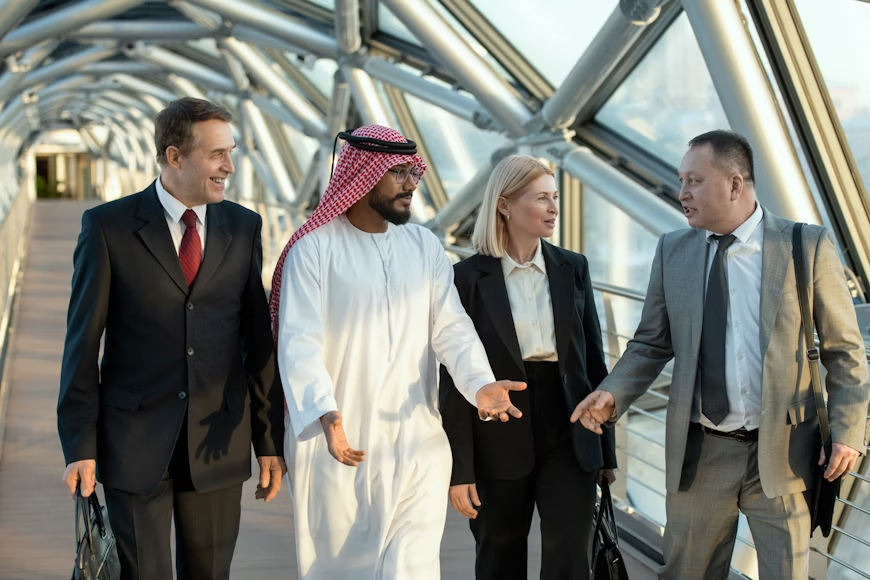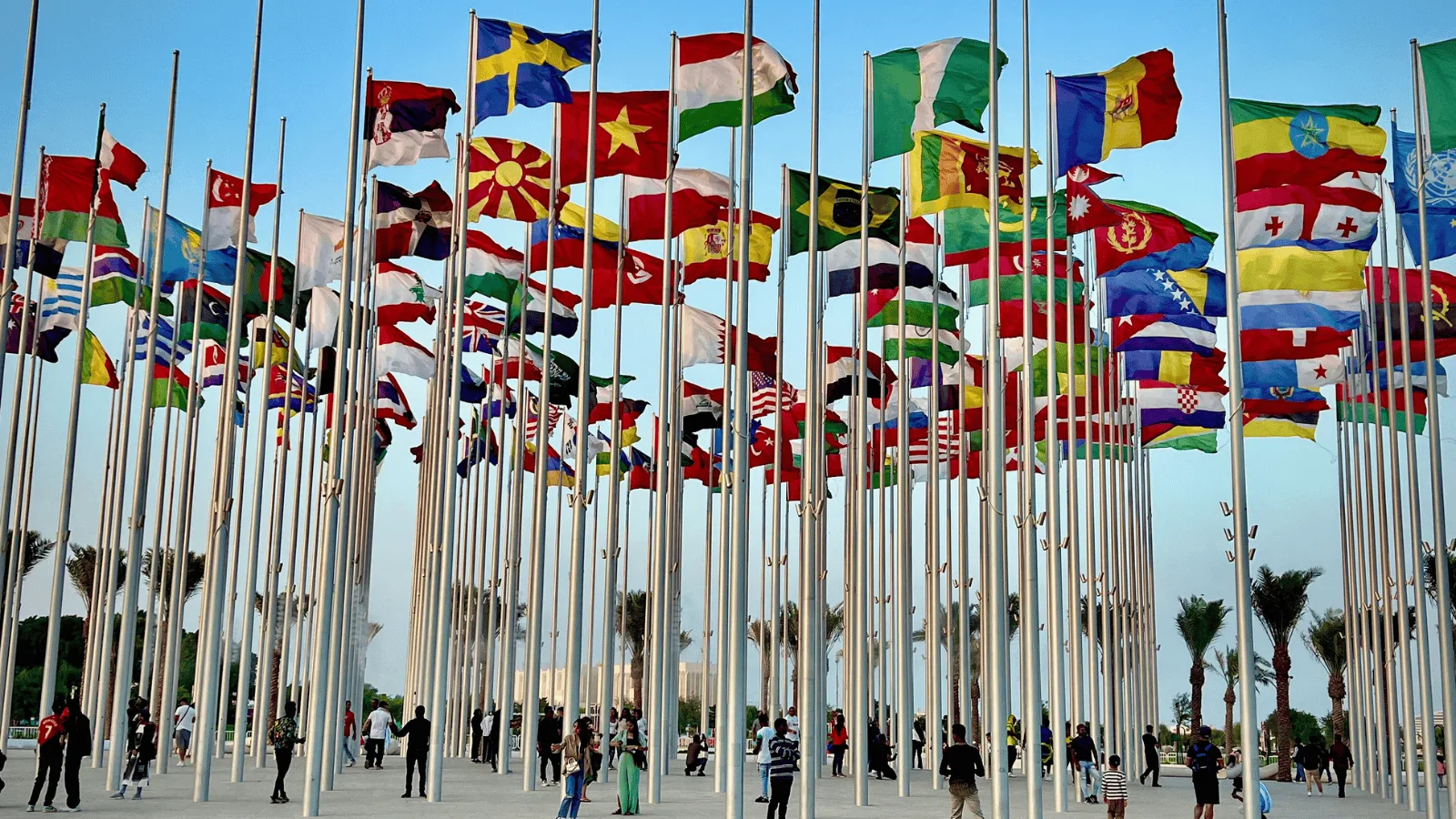People from all over the world call Dubai home. With more than 190 different nationalities residing and working here, embassies and consulates are important in supporting locals and tourists with international documents and official procedures. One important requirement appears whether you’re registering a marriage, applying for a visa, or establishing company documents: exact and certified legal translation.
Legal translation for embassies and consulates in Dubai ensures that foreign authorities will understand and accept your documents correctly. Correctly communicating the legal meaning between two languages is more important than just translating words. Especially when visiting governments and diplomatic missions, mistakes may result in cancellations or legal difficulties.
Read the Complete Guide to Legal Translation in Dubai for an in-depth description of how licensed translation works in the United Arab Emirates.
When Legal Translation for Embassies and Consulates in Dubai is Required
For their citizens and residents, embassies and consulates manage a variety of legal and governmental issues. In multiple scenarios, legal translation will be needed, such as:
- Submitting applications for nationality, immigration, or visas
- Certifying birth, marriage, or educational credentials
- Getting legal authorizations or powers of attorney ready for usage overseas
- Translating police, judicial, or notary papers for use in international legal proceedings
- Certifying business or academic records for international recognition
- Translating employment or medical records for formal purposes
In these situations, the embassy or consulate requires specific certified translations that are legal in both the UAE and the country of origin.
Types of Documents Commonly Use Legal Translation for Embassies and Consulates in Dubai

Legal translation for embassies and consulates covers a wide range of personal, academic, and professional documents. Common examples include:
- Birth and marriage certificates
- Divorce decrees and family court orders
- Passports and national ID cards
- Police clearance certificates
- Educational degrees and transcripts
- Medical reports
- Power of attorney, affidavits, and contracts
- Business licenses and trade documents
Every embassy may have its own format and certification standards, which is why working with an experienced MOJ-certified legal translator in Dubai is important.
Translation and Attestation Workflow
To be sure of official approval, legal translation for submission to an embassy or consulate goes through a demanding procedure. This is how it typically operates:
1. Verified Translation
A translator certified by the UAE Department of Justice must first translate the document. The material and layout of the translation must exactly match those of the source text.
2. Certification by UAE Authorities
The document is first attested by the UAE Ministry of Justice (MOJ) and later by the UAE Minister of Foreign Affairs (MOFA) following translation. This indicates the validity of both the original paper and the translation.
3. Embassy or Consulate Legalization
The document is sent to the appropriate office or embassy for final legalization after being attested by UAE authorities. It becomes lawful for application in the foreign nation after this stage.
It’s important to keep in mind that every company has unique needs, such as how papers should be arranged, locked, and certified. Before submitting, always confirm the government’s recommendations.
Why Is Certified Legal Translation Important?
The greatest accuracy requirements must be met when translating legal documents for embassies and consulates. A little error might lead to a delay or rejection. This is why having a verified translation is important:
1. Official Acceptance
Government organizations and embassies only accept translations produced by translators recognized by MOJ.
2. Accuracy and Legal Validity
Qualified translators ensure that all legal terms and words are translated correctly while protecting the original text’s content.
3. Preventing Delays
Inaccurate or insufficient translations may delay processing, legality, or recognition overseas.
4. Confidence and Compliance
By guaranteeing that papers adhere to both UAE and international standards, certified translations help foster confidence with foreign authorities.
Typical Difficulties in Translation Associated with Embassy
Working with paperwork from diplomats and consulates may be challenging. Typical difficulties include the following:
- Language Combinations: It often demands specific language understanding to translate between Arabic and non-English languages (such as Russian, French, or Spanish).
- Format Changes: Various embassies have tight specifications for document formatting, seals, and stamps.
- Short Deadlines: Many embassy applications, particularly those pertaining to immigration or visas, have a deadline.
- Confidentiality: Embassy documents often contain sensitive legal or personal information that requires discreet and secure handling.
Expert translation services in Dubai are prepared to handle these difficulties and guarantee that your papers are approved without any problems.
Best Practices for Applicants and Translators

Both applicants and interpreters must stick to a few crucial procedures to guarantee seamless submissions to governments and consulates:
Regarding Applicants:
Before starting, always check with your embassy for requirements for translation and certification.
For Applications:
- For formal papers, use translators approved by MOJ.
- For your records, maintain both the original and the translated versions.
- Please double-check to ensure that the names, dates, and stamps match exactly.
- Allow the entire process, including the embassy and MOFA attestation, enough time.
For Business
- Please ensure that your presentation and wording are consistent.
- Please ensure the translation accurately conveys its original meaning.
- Make sure official fingerprints and symbols are easily readable.
- Observe the certification requirements and terminology used by the embassy.
Paying attention to these specifics guarantees seamless international processing and helps avoid rejection.
Embassies and Legal Translators Working Together

To guarantee compliance, embassy or consular employees frequently collaborate closely with qualified legal translators. Their collaboration aids in:
- Providing clarification on embassy-specific attestation and translation regulations
- Making sure translated materials adhere to style and format requirements
- Verifying that legal and official phrases are used correctly
- Overseeing multilingual contributions from several nations
Collaborating ensures accuracy and prevents unnecessary delays in document approval or legalization.
Helpful Government Resources
For anyone handling official paperwork in Dubai, understanding the translation and attestation process is essential. You can find verified information about translator licensing, attestation steps, and document legalization from official UAE authorities.
Visit the UAE Government portal to explore the latest services and procedures for legal translation and document approval. Checking these sources ensures your documents meet all embassy and government standards before submission.
Conclusion: Legal Translation Fosters Global Confidence
For the purpose of maintaining confidence between people, organizations, and governments, legal translation for embassies and consulates in Dubai is important. Certified translation ensures that the files are accepted quickly and without misunderstanding, whether you’re managing foreign company paperwork, licensing certifications, or presenting papers for a visa.
Selecting a legal translation firm with MOJ certification ensures that all documents are correct, acceptable, and available for use at an embassy or consulate. Reliable translation ensures the professional and respectful handling of your legal and personal affairs across borders.


